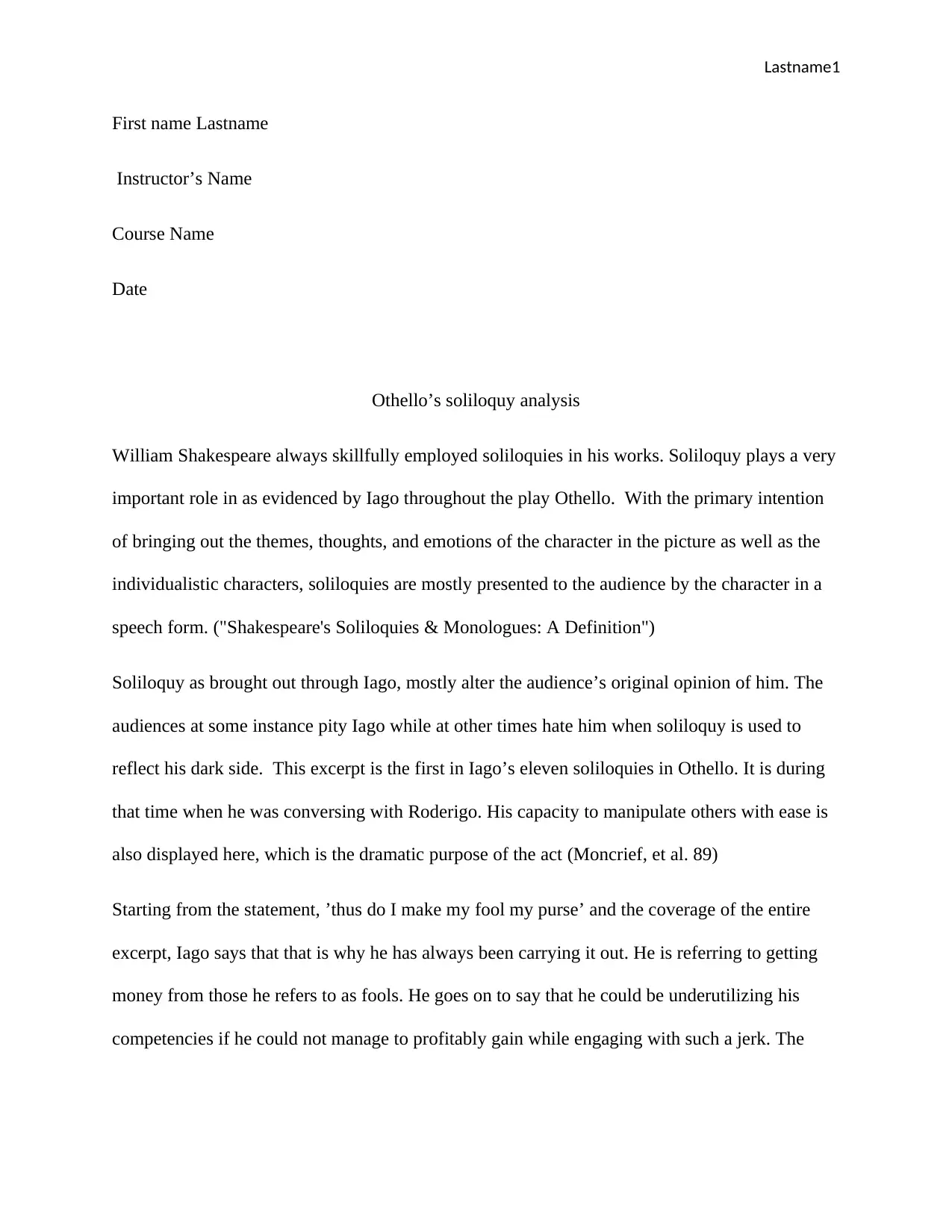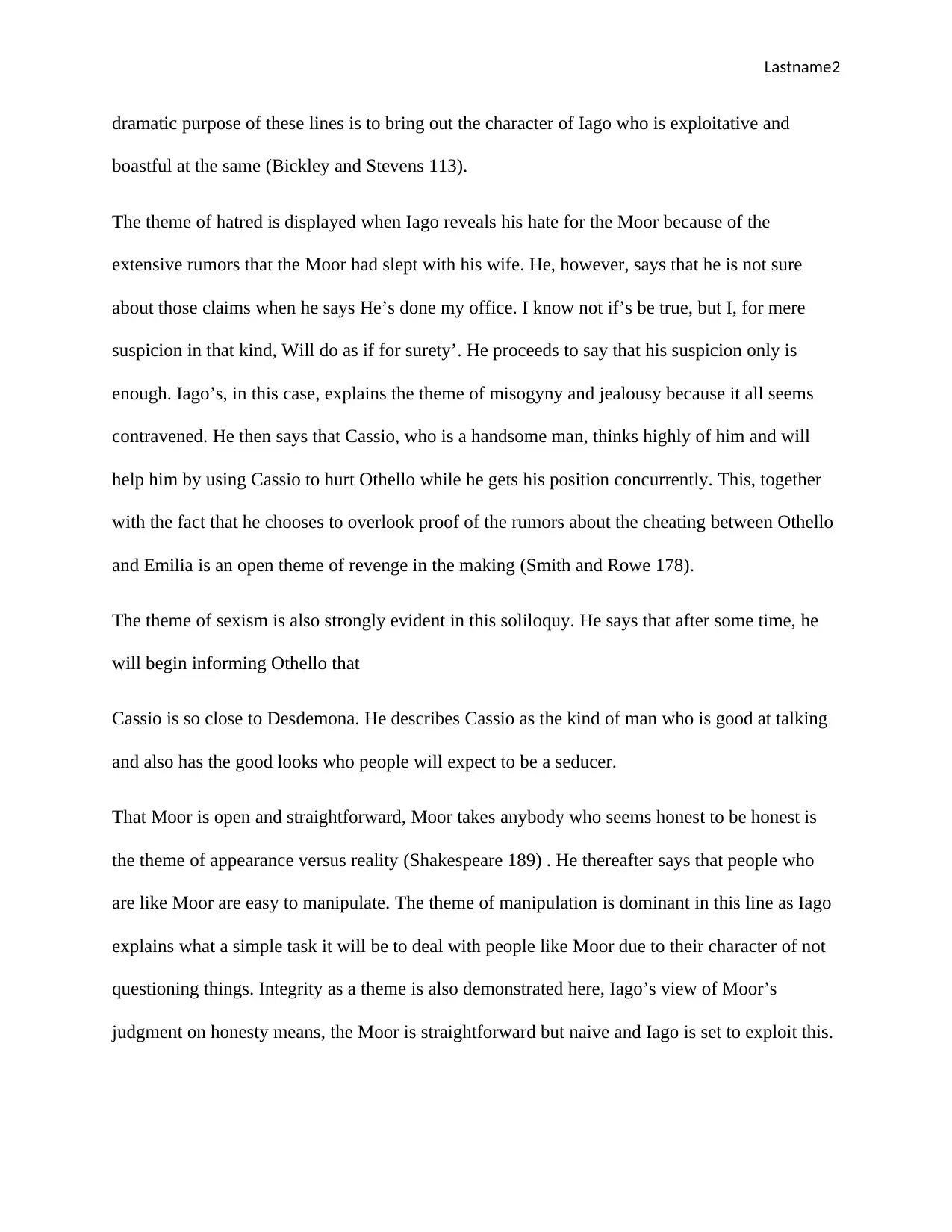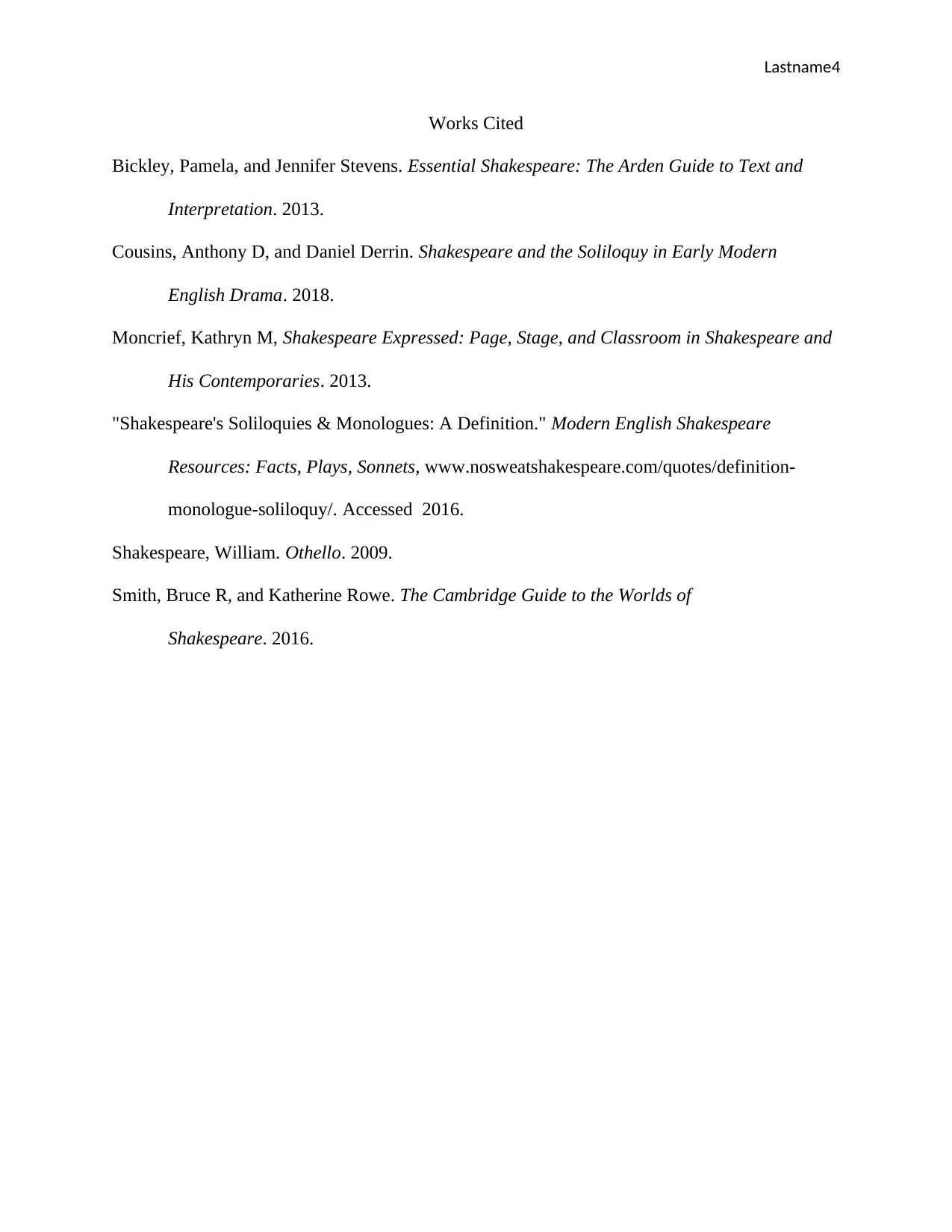A Comprehensive Analysis of Iago's Soliloquy in Shakespeare's Othello
VerifiedAdded on 2023/06/10
|4
|833
|443
Essay
AI Summary
This essay provides an in-depth analysis of Iago's soliloquy in William Shakespeare's Othello. The analysis focuses on the dramatic purpose of the soliloquy, revealing Iago's manipulative plan to destroy Othello's life through his relationships. The essay examines key themes, including jealousy, revenge, manipulation, appearance versus reality, and sexism, as demonstrated through Iago's words and actions. The essay highlights Iago's exploitative and boastful character, his hatred for Othello, and his scheme to use Cassio to achieve his goals. The analysis explores how Iago's soliloquy reveals his malicious intent and his ability to exploit others' weaknesses, ultimately driving the plot forward and shaping the tragic events of the play. The essay also explores the importance of soliloquies in Shakespeare's works in portraying characters' thoughts, emotions, and individualistic natures.
1 out of 4









![[object Object]](/_next/static/media/star-bottom.7253800d.svg)